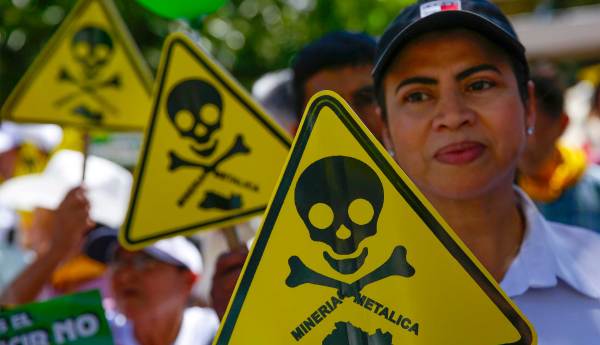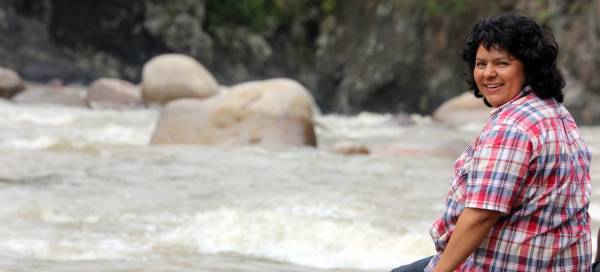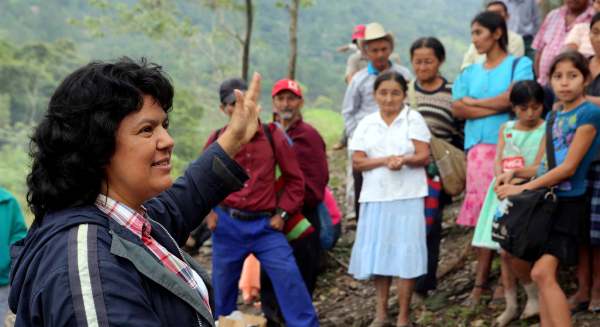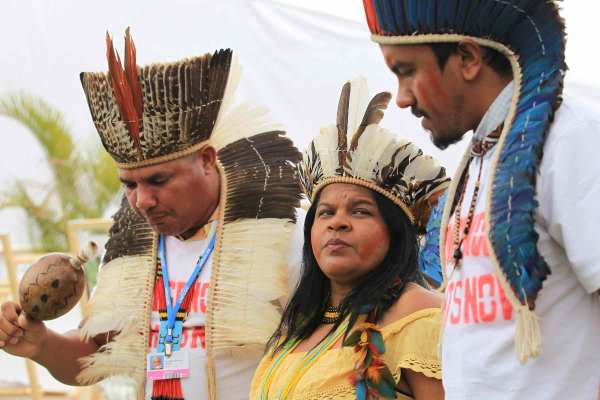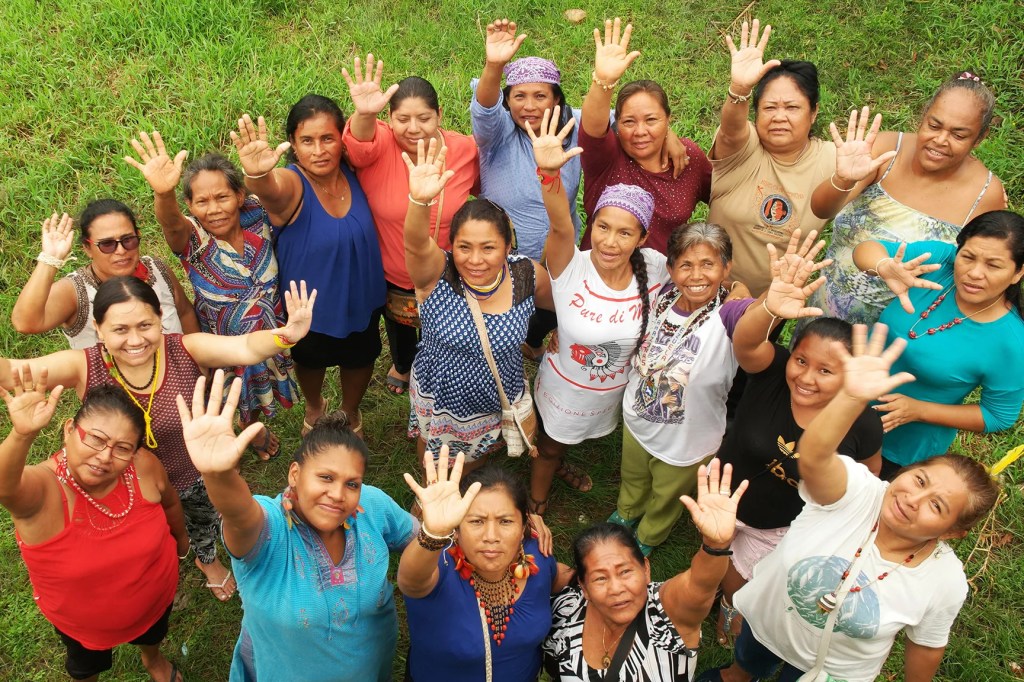
While women have made some progress in achieving political parity around the world, that progress has been slow, and in some cases appears to have stalled. On average, only 20 percent of national legislators are women. In the United States the figure is even lower. In Brazil, only 8 percent of legislators are women.
This inequality holds true in all kinds of places, from national capitals to remote forests. In those more isolated places, women typically have limited rights to make decisions about the land they manage, though their traditional knowledge is critical to protecting their resources, families, and communities, and the climate. According to a recent analysis by the Rights and Resources Initiative, less than one-third of countries have laws guaranteeing women secure land rights.
But around the world, women are mobilizing, and the situation is changing. In Leticia, in the Colombian Amazon, indigenous women leaders from 17 grassroots territorial organizations and 11 Latin American countries joined forces to plan their participation in the forthcoming assembly of the Coordinating Body for the Indigenous Organizations of the Amazon Basin (COICA). COICA is a regional body whose members have rights to over 200 million hectares of tropical forest lands—an area larger than all the farm land in the US. These leaders wanted to ensure that women are well-represented when COICA elects new leadership.
Similarly, 5,000 people from 2,000 communities in Indonesia gathered in a rural village last year for the congress of the Indigenous Peoples Alliance of the Archipelago (AMAN). They unanimously elected Rukka Sombolinggi as AMAN’s new secretary general—the first woman ever to hold that position.
A few months later, the Coordination of Indigenous Organizations of the Brazilian Amazon (COIAB) elected Nara Baré as its first female president. Meanwhile, Sônia Guajajara, from the Brazil’s Indigenous People Articulation (APIB), is running as a candidate to be Brazil’s vice president. Paulina Garrido is the first woman president in the 40-year history of the Tosepan Cooperative Union in Mexico’s Puebla highlands, which represents 35,000 indigenous Maseual forest families. In Guatemala, Utz Che’, which represents 113 forest communities, has approved new statutes giving women parity in leadership.
Across the seas in Africa, women are demanding their right to free, prior, and informed consent (FPIC), with support from organizations like WoMin and the International Alliance on Natural Resources in Africa (IANRA). Nonhle Mbuthuma, the heroine of South Africa’s award-winning documentary The Shore Break, recently testified in court against a large titanium mining project that would displace families and pollute water supplies.
Around the globe, women from remote areas are traveling great distances by canoe, boat, and truck to participate, speak out, and exercise their vote. They want more women leaders to run for office and have a real say in their regional organizations.
Accessibility Statement
- All videos produced by the Ford Foundation since 2020 include captions and downloadable transcripts. For videos where visuals require additional understanding, we offer audio-described versions.
- We are continuing to make videos produced prior to 2020 accessible.
- Videos from third-party sources (those not produced by the Ford Foundation) may not have captions, accessible transcripts, or audio descriptions.
- To improve accessibility beyond our site, we’ve created a free video accessibility WordPress plug-in.
Rural women also want to manage their own community funds. Less than 10 percent of global climate finance reaches local communities, according to the International Institute for Environment and Development (IIED). Since 2013 a dynamic group of women in the Brazilian Amazon have managed their own community fund, called the Luzia Dorothy do Espírito Santo Fund. Now, another movement of 300,000 women who collect babassu palm nuts (an ingredient used in some cosmetics) have established their own Babassu Fund. Thanks to the women’s successful negotiations to get international climate finance, the Babassu Fund was recently capitalized for US$1 million, with an additional US$2 million in grants.
Such efforts by women often take years to bear fruit, but when they do, they can be truly transformational. No case illustrates this better than that of the Federation of Community Forestry Users of Nepal (FECOFUN). Last year Nepal held its first elections after a decades-long civil war, and a remarkable 14,000 women won seats in local government. More than 600 of them were members of FECOFUN, who built their great achievement in political parity through their efforts to manage their lands and forests.
This kind of progress resonates far beyond any one person or place. By supporting greater parity for women in indigenous and community forest organizations, we can help build more inclusive political systems worldwide.


